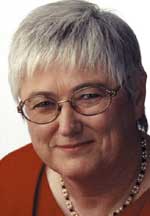
Michael Kenneth Moore was a New Zealand politician,union organiser,and author. In the Fourth Labour Government he served in several portfolios including minister of foreign affairs,and was the 34th prime minister of New Zealand for 59 days before the 1990 general election elected a new parliament. Following Labour's defeat in that election,Moore served as Leader of the Opposition until the 1993 election,after which Helen Clark successfully challenged him for the Labour Party leadership.

The 1996 New Zealand general election was held on 12 October 1996 to determine the composition of the 45th New Zealand Parliament. It was notable for being the first election to be held under the new mixed-member proportional (MMP) electoral system,and produced a parliament considerably more diverse than previous elections. It saw the National Party,led by Jim Bolger,retain its position in government,but only after protracted negotiations with the smaller New Zealand First party to form a coalition. New Zealand First won a large number of seats—including every Māori electorate,traditionally held by Labour. Its position as "kingmaker",able to place either of the two major parties into government,was a significant election outcome.
Clive Denby Matthewson is a New Zealand civil engineer and former politician.
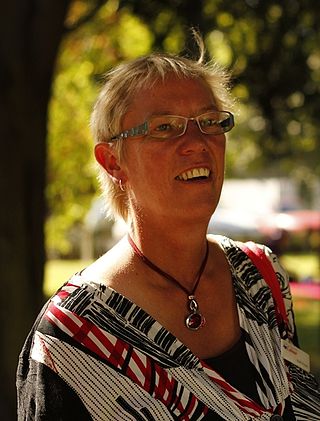
Ruth Suzanne Dyson is a former New Zealand politician. She was a Labour Party Member of Parliament from 1993 to 2020. She represented the Port Hills electorate from the 2008 election election to 2020. She also held a number of senior offices in the Labour Party,including president.
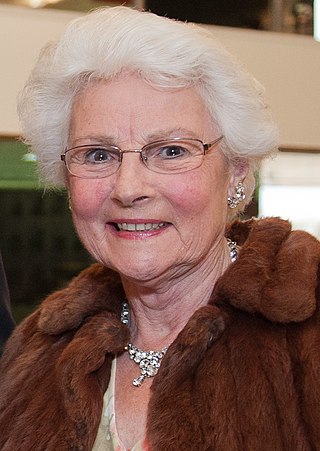
Margaret Elizabeth Austin is a former New Zealand politician. She was an MP from 1984 to 1996,representing first the Labour Party and then briefly United New Zealand.
Pauline Mona Gardiner is a former New Zealand Member of Parliament,first for New Zealand National Party and then for United New Zealand. She was married to soldier,writer and public servant Wira Gardiner.

David Francis Caygill is a former New Zealand politician. Caygill was born and raised in Christchurch. He entered politics in 1971 as Christchurch's youngest city councillor at the age of 22. He served as a Member of Parliament (MP) from 1978 to 1996,representing the Labour Party. A supporter of Rogernomics,he served as Minister of Finance between 1988 and 1990. From 2010 to 2019,he was one of the government-appointed commissioners at Environment Canterbury.
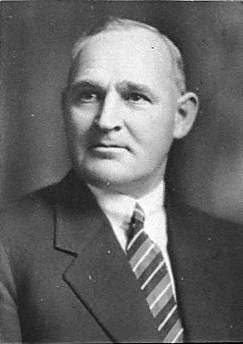
Frank Langstone was a New Zealand Member of Parliament,Cabinet Minister and High Commissioner to Canada.

Christchurch Central is a New Zealand parliamentary electorate in the South Island city of Christchurch. The electorate was established for the 1946 election and,until 2011 had always been won by the Labour Party. Since 2008,the incumbent was Brendon Burns but the election night results for the 2011 election resulted in a tie;the special vote results combined with a judicial recount revealed a 47-vote majority for Nicky Wagner,the National list MP based in the electorate. Wagner significantly increased her winning margin in the 2014 election after having declared the electorate "unwinnable" for National earlier in the year following a boundary review. At the 2017 election Wagner lost the seat to Labour's Duncan Webb,who retained it at the 2020 election.
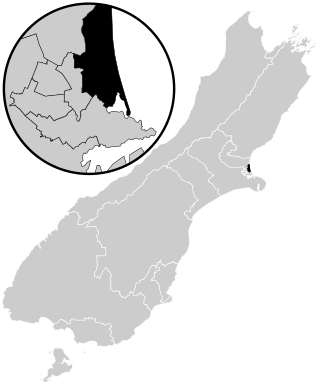
Christchurch East,originally called Christchurch City East,is a current New Zealand parliamentary electorate. It was first created for the 1871 election and was abolished for two periods,from 1875–1905 and again from 1946–1996. It was last created for the introduction of the MMP voting system for the 1996 election. The current MP is Poto Williams,a member of the New Zealand Labour Party who was first elected in the 2013 Christchurch East by-election.

Wellington Central is an electorate,represented by a Member of Parliament in the New Zealand House of Representatives. Its MP since November 2008 has been Labour Party's Grant Robertson. In the 2020 election he was opposed by James Shaw (Greens) and Nicola Willis (National),both also entered parliament via their respective party lists.

Grant Murray Robertson is a New Zealand politician and member of the Labour Party who has served as the minister of finance since 2017 and served as the 19th deputy prime minister of New Zealand from 2020 to 2023. He has been the member of Parliament (MP) for Wellington Central since 2008.

Patricia Hekia Parata is a former New Zealand politician and former member of the New Zealand House of Representatives,having been elected to parliament in the 2008 general election as a member of the New Zealand National Party. She served as the Minister of Education in the Fifth National Government.
Avon is a former New Zealand parliamentary electorate. It was created for the 1861 general election and existed until 1996. It was represented by 13 Members of Parliament and was held by Independents,Liberal Party or Labour Party representatives.

The 49th New Zealand Parliament was elected at the 2008 election. It comprised 122 members,including an overhang of two seats caused by the Māori Party having won two more electorate seats than its share of the party vote would otherwise have given it. The Parliament served from 2008 until the November 2011 election.
Chalmers,originally Port Chalmers,was a parliamentary electorate in the Otago Region of New Zealand,from 1866 to 1938 with a break from 1896 to 1902. It was named after the town of Port Chalmers,the main port of Dunedin and Otago.
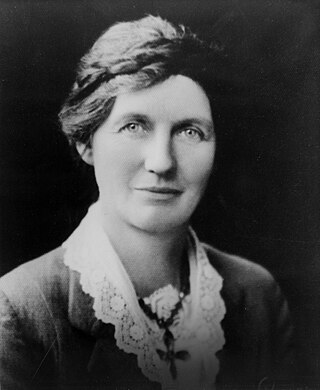
The Lyttelton by-election of 1933 was a by-election held during the 24th New Zealand Parliament in the Christchurch electorate of Lyttelton. It is notable for being won by Elizabeth McCombs of the New Zealand Labour Party,who became the first woman to be elected to the New Zealand Parliament. This by-election was therefore seen as a milestone in Women's suffrage in New Zealand.

The 1943 Christchurch East by-election held on 6 February was caused by the death of Tim Armstrong during the term of the 26th New Zealand Parliament. The by-election in the Christchurch East electorate was contested by five candidates,including representatives from the Labour Party,the Labour breakaway party Democratic Labour Party and the National Party. The election was won by the Labour candidate,Mabel Howard,and started her long parliamentary career,which included her becoming the first female cabinet minister in 1947.
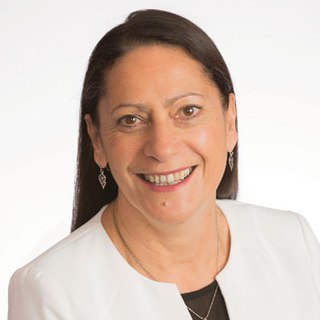
Munokoa Poto Williams is a New Zealand Labour Party politician and a member of Parliament. She was elected in a 2013 by-election and served as Minister of Conservation and Minister for Disability Issues in the Sixth Labour Government.

Virginia Ruby Andersen is a New Zealand politician and Member of Parliament in the House of Representatives for the Labour Party.
